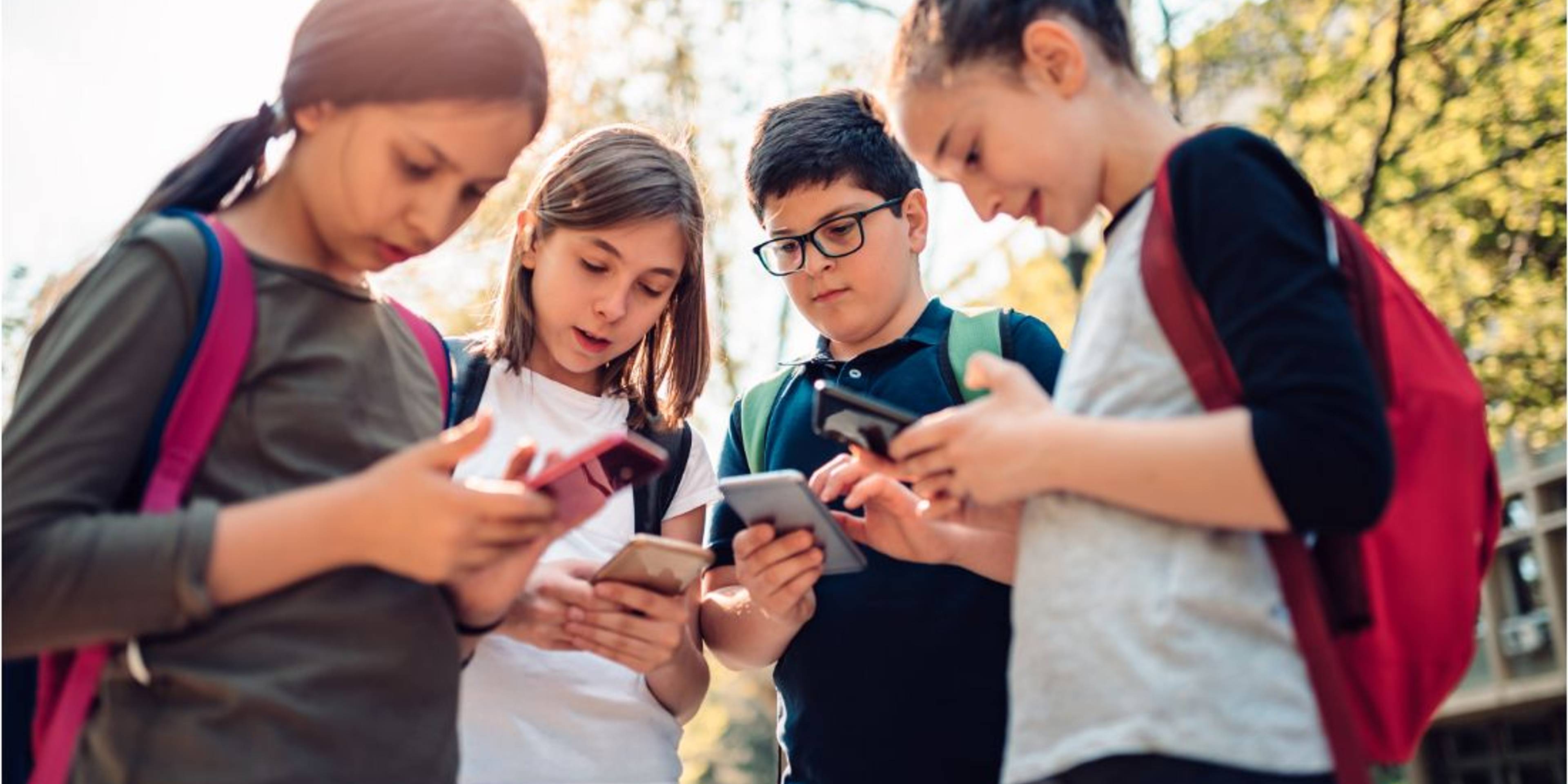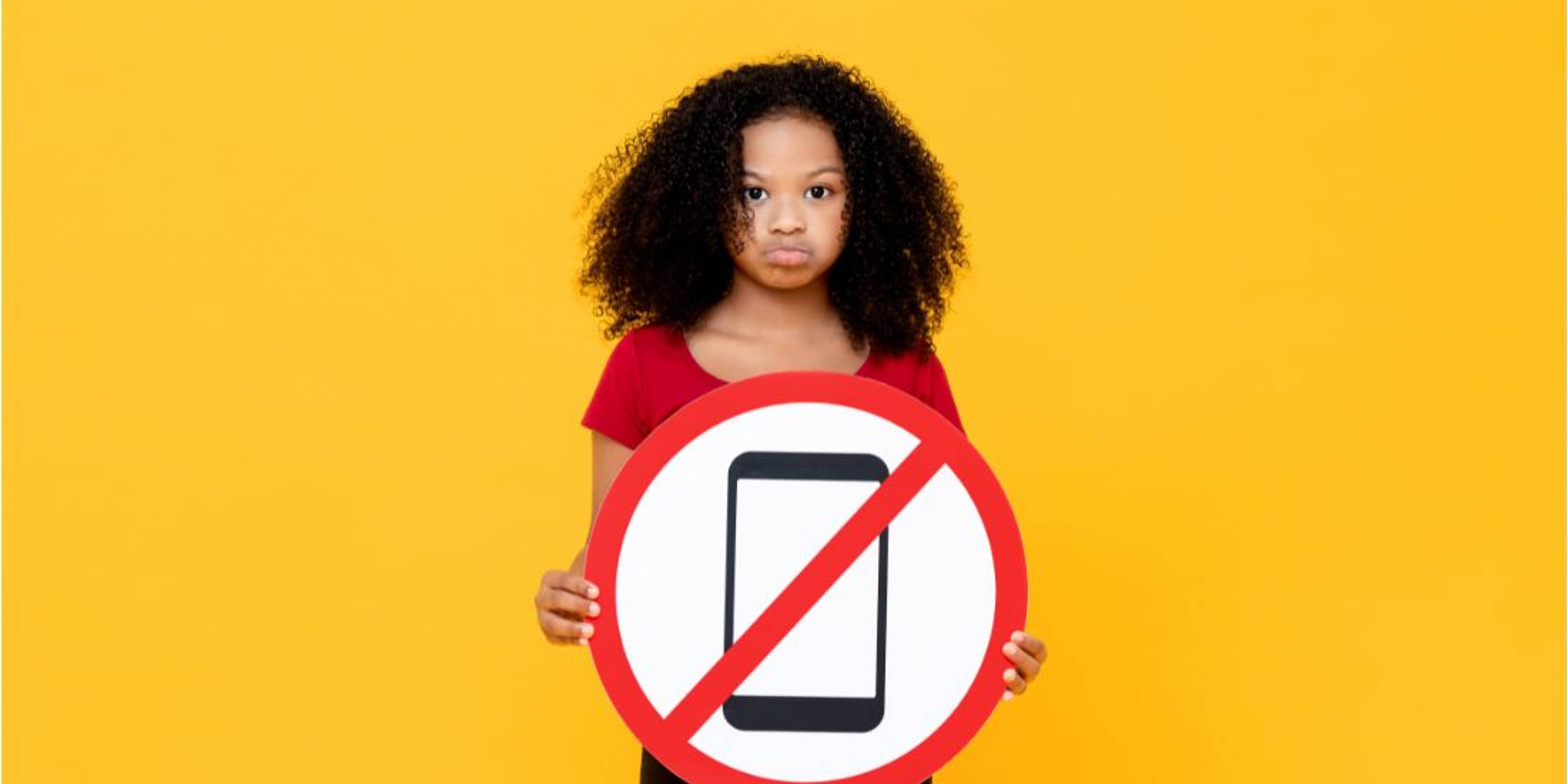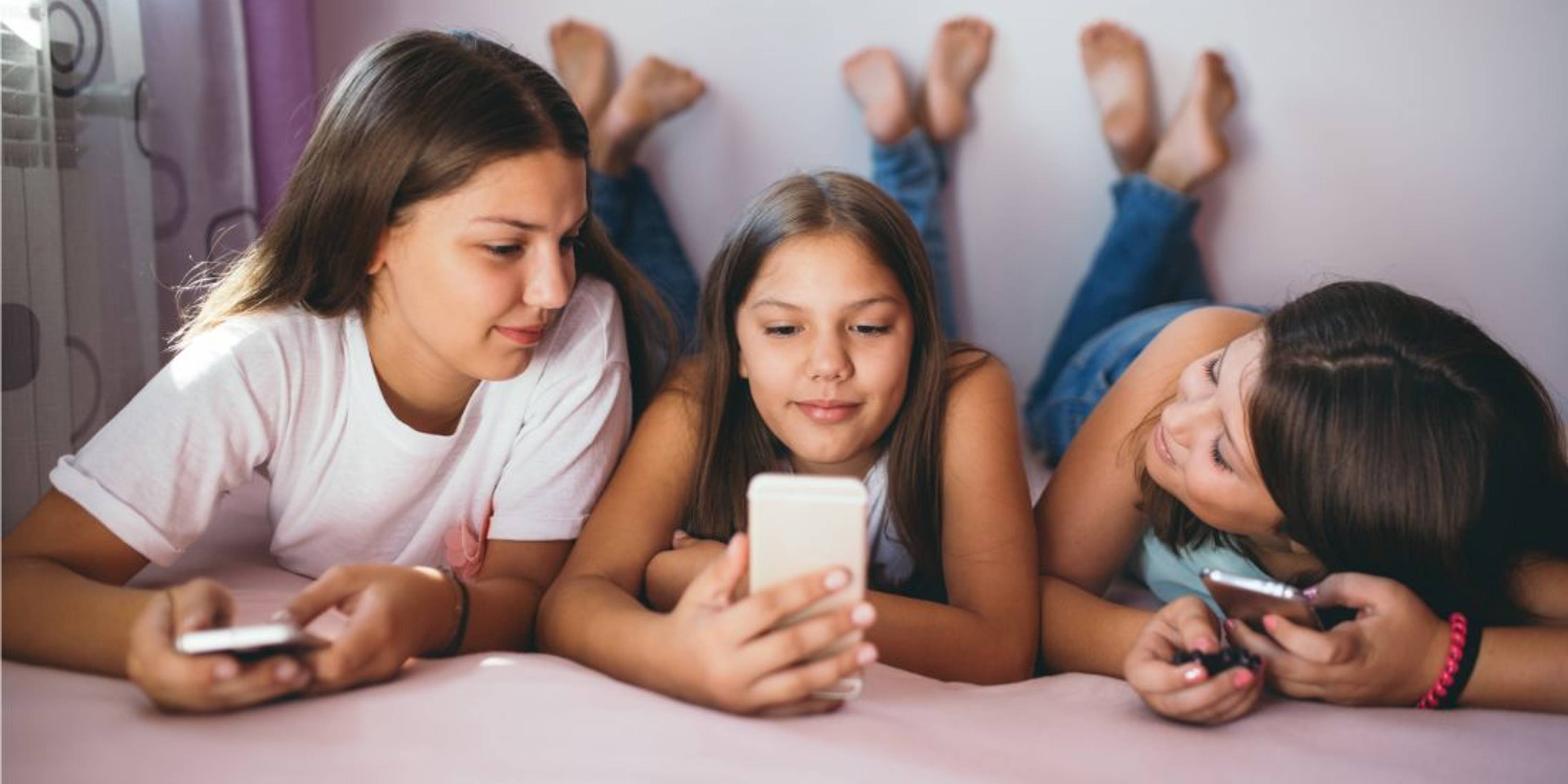August 13, 2025
Students’ views on smartphone bans

In recent years, banning or restricting children’s access to smartphones and social media has grasped the attention of policy makers, schools and parents. A number of countries, including France, Turkey, Norway, Sweden, and regions of the US and Canada have introduced laws, policies or guidance for schools to ‘ban’ or heavily restrict the use of phones. Within Ireland, in 2024, the Minister for Education announced her intention to introduce smartphone bans in post-primary schools, whilst at the same time acknowledging that individual schools are best placed to decide on the scope and scale of restrictions for their students.
Whilst these bans aim to protect children from harm, and teachers often anecdotally report seeing benefits, evaluations of existing research highlight a lack of evidence on their efficacy. At the moment, we simply don't know enough about the impact of bans. Evidence is hampered by the fact that technological developments and technology use is moving at a faster pace than research. Some studies suggest that bans are beneficial to academic outcomes and mental wellbeing. Others suggest no effects. However, many studies have methodological weaknesses, use small samples or retrospective data, and can't ascribe causal mechanisms.
Our latest Researcher of the Month, Dr Megan Reynolds, has recently published a paper which explores young people's perspectives and experiences of smartphone bans in their schools. Unlike most previous research, it centres student voices in this high profile issue.
Summary
The researchers carried out focus groups during the first year of full phone bans at a set of schools in Ireland. They spoke with 66 students, 44 girls and 22 boys aged between 10 and 18 years old. The schools that feature in the study were chosen as early adopters of full bans. Prior to full bans, most of the schools had policies which restricted phone use at certain times of the day.
Secondary and senior schools in the study had introduced various measures to keep students from looking at their phones. Some gave every student a locked pouch in which to place their smartphone at the start of each day. Students could then keep the pouch with them in their bag before unlocking it using a special device at the end of each day. Other schools required students to place their smartphones into clear boxes mounted on the outside of their lockers, which were locked with either a padlock or combination until the end of the day. Within primary settings, the schools in the study tended to implement voluntary codes, designed to encourage parents to delay smartphone acquisition, though children frequently accessed digital content at home via other family devices.
Whilst bans are implemented with the best intentions from school staff, it is clear that students in the study did not feel that their voices were included in decision-making and they expressed a desire to have a say in decisions on both this issue and other aspects of their school lives. Students in the study identified factors that they considered more pressing and important than phone bans, such as the state of school facilities and health issues.
Most students in the study welcomed some restrictions and support around phone use, but objected to the notion of a full ban. They felt that blanket bans implied that they weren't trusted to manage their own phone use during school hours appropriately. A prominent theme was a sense of injustice. Students felt that they were being punished for the actions of a few who might have misused previous, more lenient policies, and they didn’t think this was fair. The students felt a greater sense of division with school staff. Spot checks, where teachers checked bags and ensured that pouches were closed, compounded this sense of mistrust, and impacted on student/teacher communication. Some students also referenced a perceived double standard or hypocrisy in behaviour, noting that teachers also cause distractions to the learning environment with their phone use.
The interviews revealed that the stricter the phone ban, the more students looked for ways to subvert it. Once a ban was in place, students reported actively seeking ways around it. They also said they felt more preoccupied with their phones than they had been before the ban.
One rationale behind bans is to reduce anxiety and distraction that might be caused by repeated notifications throughout the school day. However, some of the young people in this study, who had previously been able to contact their parents or carers if they wished, reported that being unable to do so created feelings of anxiety and vulnerability.
Students said they were told that reducing cyberbullying was a key reason for phone bans, but they neither understood nor accepted this rationale. Most reported no personal experience of cyberbullying and were unaware of it being an issue in their schools before the ban. They felt that banning phones in school would not stop cyberbullying, as it was more likely to occur outside school hours, a view supported by research showing that most cyberbullying happens outside of school hours.
Importantly, students argued that smartphone bans do not teach self-regulation or prepare them for life beyond school, where no one will manage their phone use for them. They felt that under previous, more flexible rules, where using a phone in class led to its removal, they learned more about when phone use was appropriate.
What did students suggest instead of bans?
Students suggested that schools should consider more flexible phone policies, noting that different learners have different needs (a view supported by international research). They favoured rules that trust students to keep phones in their bags, with clear guidelines and fair consequences for misuse. They also strongly highlighted the need for education on navigating the digital world safely, recognising harmful content or cyberbullying, and knowing what to do if they encounter it. They felt that if money was being spent on pouches and boxes for bans (pouches cost around 20 euros per student), it would be better spent on digital literacy education.
Implications
What can schools do?
Implement any new strategy only after thoughtful consideration. It’s important to consider what inadvertent impact phone bans might have on school culture, pupil-teacher relationships, mutual trust and respect, and individual students’ needs.
Remember that teachers and pupils value nuances in policies. A nuanced and well thought out policy can cater for different demographics of pupils, different ways of learning, different approaches and different levels of education.
Consult students meaningfully and act on their feedback. While many have valuable suggestions and want to be heard, some in the study felt that non-anonymous surveys or casual questions were tokenistic, unlikely to spark change, and could have personal repercussions. Genuine consultation means creating safe spaces for open discussion, not just requesting feedback without follow-through. Dr Reynolds suggests that creative workshops can be an effective way to boost engagement. Students are generally aware that phones could be distracting in lessons and would like more support to use them appropriately, but feel that blanket bans are unfair. The Lundy Model of Child Participation is a helpful framework involving children and young people meaningfully in decision making.
Remember that bans do not address essential digital literacy needs. Carefully consider what a meaningful digital literacy curriculum should include. Students in the study often found existing lessons boring, irrelevant or out of date. Why not survey your student body to identify content they will value? Within Dr Reynolds' study, students wanted to feel armed with practical skills for real situations.
Try to keep up with the research. New evidence is constantly emerging. Make an effort to keep pace with it, rather than making decisions based on conjecture. Tooled Up can help here!
And at home?
Remember that open communication is key. Your children are likely to be having very different digital experiences to you, and a very different childhood to the one that you remember. Chat with them about their online world, ask them about their experiences, lean in, and keep going with conversations, even if they feel tricky. Talking to children about what they are engaging with will help to encourage critical thinking and hopefully promote a stronger likelihood of them opening up if they need help or see something that upsets them.
Use devices together. Co-using, such as browsing social media or watching YouTube with your child, can spark natural, non-judgemental conversations about what they see and whether it is appropriate.
Ask your child how platforms work. Many young people in the study felt that they were more knowledgeable about social media and other digital platforms than their parents. Use this as an opportunity to start conversations. Ask them to show you features and give you advice.
Tooled Up members can listen to our interview with Dr Megan Reynolds here. Remember, if you are a Tooled Up member, you also have access to our whole platform, which is packed with evidence-based resources designed to support children in the digital world.

Dr Megan Reynolds
Postdoctoral Researcher at the Anti-Bullying Centre at Dublin City University
Dr Megan Reynolds is a postdoctoral researcher at the Anti-Bullying Centre at Dublin City University. She's working on the Cilter DTIF project, which focuses on the detection of cyberbullying, self-harm, suicide-related and grooming content for the development of Cilter technology. Previously, Dr Reynolds was a postdoctoral research fellow in the School of Psychology at University College Dublin, where she worked on a project investigating COVID-19 misinformation. She obtained her PhD from Queen's University Belfast and her PhD thesis investigated unwanted sexual experiences, mental health impacts, alcohol use and consent on university campuses in Northern Ireland. Prior to her PhD, Dr Reynolds obtained an MSc in Forensic Psychology at the University of Central Lancashire.
Dr Megan Reynolds
Postdoctoral Researcher at the Anti-Bullying Centre at Dublin City University
Related Resources
Scroll our research gallery

Feb 17, 2026
Children's Experiences of ADHD
While there have been many empirical studies of childhood ADHD, there have been few qualitative studies investigating first-hand accounts of the lived experiences of children. Much of the literature focuses on the perspectives of parents or teachers, rather than centring children’s voices. But what are children's thoughts, feelings and experiences? Our latest Researcher of the Month, PhD candidate Daphne Ling, has recently published findings which begin to address this research gap.

Jan 19, 2026
The power of reading: books, vocabulary and learning
Did you know that 2026 is the UK’s National Year of Reading? This long-overdue initiative reflects growing concern and renewed commitment around children’s reading and literacy. As Dr Maria Korochkina, our latest Researcher of the Month, puts it: “The ability to read opens up worlds. Reading enables children to progress into post-primary education and provides the basis for lifelong learning and prosperity into adulthood”. Frequent readers tend to have a stronger understanding of both their own and others’ emotions. They are often better able to communicate these emotions, a skill linked to higher emotional intelligence and improved mental wellbeing. Reading also encourages cause-and-effect reasoning and helps children imagine scenarios beyond the immediate moment - developing the skill of -future-thinking'. A rich vocabulary underpins learning across the school curriculum, strengthens thinking and communication skills, and predicts both academic attainment and later life outcomes. Research consistently shows that the most effective way to build vocabulary is through reading. However, learning to read well is not quick or effortless. The journey to skilled reading typically spans around ten years, requiring high-quality classroom instruction alongside sustained practice through independent reading. For many children, this process is painstaking, demanding consistent teaching, encouragement and opportunity over time. Against this backdrop, recent evidence presents a worrying picture. Fewer children are reading for pleasure than ever before. In 2024, only one in three UK children and young people aged eight to 18 reported enjoying reading in their free time. Even more strikingly, just one in five said they read daily for pleasure, the lowest level recorded since the National Literacy Trust began collecting this data in 2005. This matters because reading ability and reading enjoyment are deeply intertwined. Children who find reading effortful are far less likely to choose to read independently. Dr Korochkina’s research highlights how early reading experiences shape later habits: difficulties with phonic and morphological knowledge in the early stages of reading acquisition can have a snowball effect, reducing confidence, fluency and motivation over time. Her work also offers a powerful note of optimism. Books that children actively choose to read, including contemporary, popular texts, provide rich opportunities to develop vocabulary, particularly when children read widely. Ensuring access to a diverse range of engaging reading material, alongside strong early instruction, can play a vital role in building both reading skill and reading motivation. Fostering confident, motivated readers requires long-term commitment. It is not enough for children simply to have books available to them. They need skilled teaching, time, practice and a culture that values reading as both a skill and a pleasure.

Dec 15, 2025
Crossing the line into cybercrime
As the most digitally connected generation so far, young people today face new challenges. Our latest Researchers of the Month, Professor Davidson and Dr Farr, have found that in the last decade, an increasing number of young people (particularly young men) have committed serious cybercrime offences, particularly hacking and money laundering. Their new book, written following a large research project funded by the European Union’s Horizon 2020 research and innovation programme, seeks to understand the drivers behind this trend. It explores a range of potential factors that may lead young people to engage in risky online behaviours, and to identify effective pathways for prevention.

Nov 16, 2025
Supporting Children’s Use of AI
Children and young people are now growing up surrounded by AI, and the landscape is shifting fast. In the UK, recent data from Ofcom and Internet Matters suggests that around half of children aged 8–17 regularly use generative AI tools such as ChatGPT, Bard or Snapchat’s MyAI. Many describe these interactions as feeling like conversations with a friend. A recent report from Common Sense Media found that 33% of teens had actually chosen to talk to an AI companion instead of a real person about something important or serious. Whether children are asking voice assistants to answer their questions, relying on chatbots for bedtime stories, using learning apps for revision or engaging with large generative AI models, it’s essential to remember that most of these systems were built with adults in mind, not children. They often assume levels of attention, memory and emotional maturity that younger users simply don’t have. Even older children and teenagers, who increasingly use AI as a supportive confidante (often without adult supervision or knowledge), are still learning to navigate boundaries around trust, identity and emotion. Our latest Researcher of the Month, Dr Nomisha Kurian, wants this to change. She has developed a new framework called Developmentally Aligned Design (DAD), which outlines how AI can be built with children’s needs, vulnerabilities and strengths at its core. She also chatted to us at Tooled Up, sharing practical tips on recognising when children may be relying too heavily on AI for emotional connection, how to talk to them about healthy boundaries, and how parents and educators can help children and young people use AI tools safely, creatively and critically.
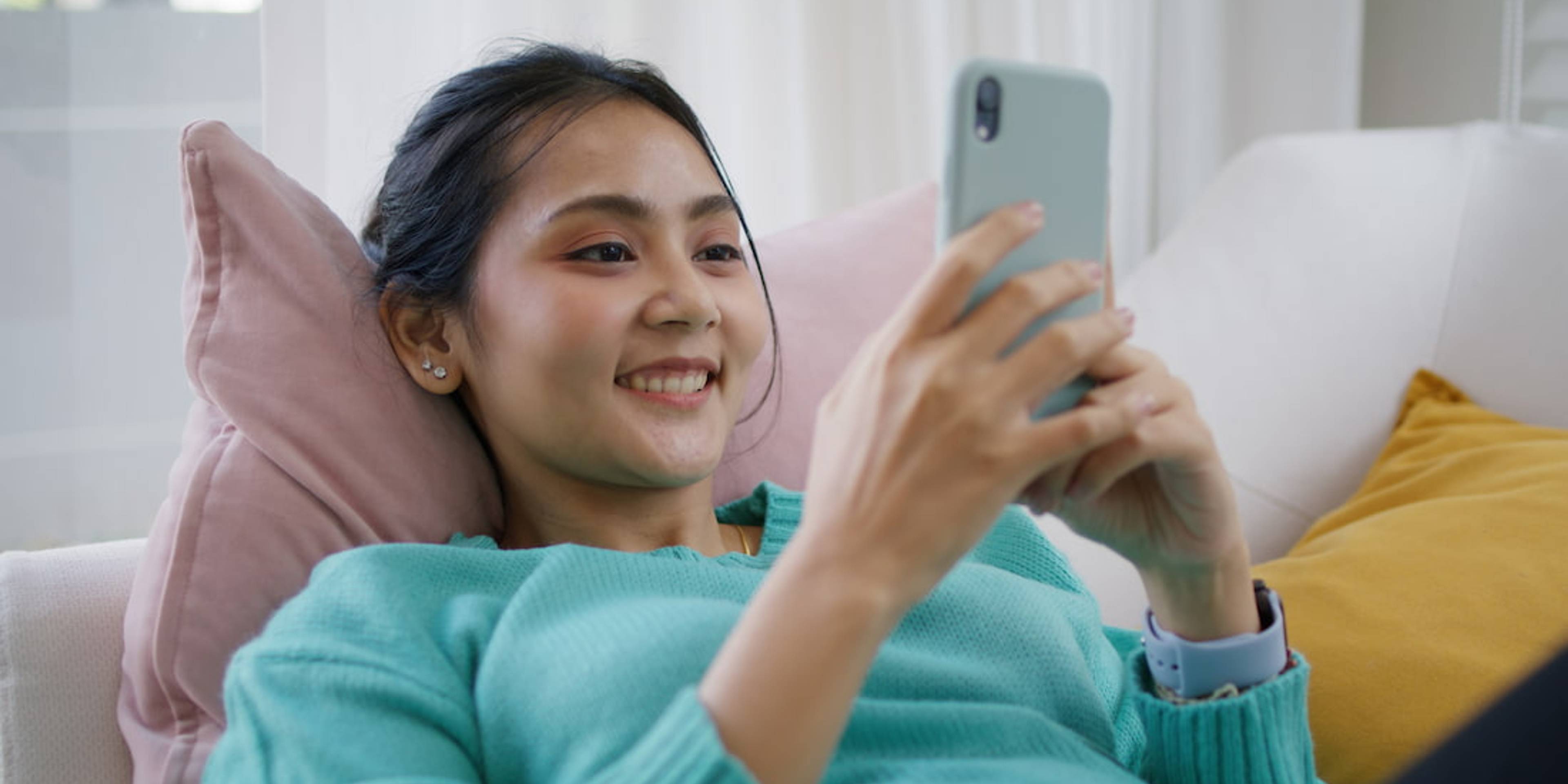
Oct 16, 2025
Algorithmised Girlhood: Teenage Girls and TikTok
As part of the early stages of her PhD study, our latest researcher of the month, Chiara Fehr, ran several focus groups about experiences of TikTok with eight 17 year old girls. Using creative methods, such as ‘TikTok show and tells’ a collaging session and a utopic mapping exercise, Chiara is exploring whether dominant narratives around growing up in a digitised world reflect the real life experiences of teens, and has summarised her findings so far in a recent article.
![“[They use devices] alllllllll day long”. What do children think about our tech use?](https://cdn.sanity.io/images/jxfh43in/content-prod-d2c/79f219275088655f59590f61ff29b6bc8b0d77f8-1100x733.jpg?w=3840&h=1920&q=70&fit=crop&crop=center&auto=format)
Sep 09, 2025
“[They use devices] alllllllll day long”. What do children think about our tech use?
We're all used to reading about children and young people's increasing use of digital tech. But what about adults' use? And what impact might our tech use have on family life? Parents today are spending an unprecedented amount of time on their devices. One study found that parents spend an average of nine hours per day engaged with screen devices. Over four hours of this is on smartphones, averaging 67 phone checks per day. Despite children's central role in family life, their voices and perspectives on the device use of the adults around them have been largely neglected in research. Along with colleagues, our latest Researcher of the Month, Professor Cara Swit, has published a fascinating study exploring the experiences and perceptions of children aged six to nine about their parents’ device use at home and its impact on them.

Jul 14, 2025
Do teens with mental health conditions use social media differently than their peers?
As Luisa Fassi, our new Researcher of the Month, comments, "The link between social media use and youth mental health is hotly debated, but hardly any studies look at young people already struggling with clinical-level mental health symptoms". In fact, Luisa's large systematic review and meta-analysis found that only 11% of papers published on the topic since 2007 focused on young people with clinical conditions. Her review also showed that the data used to evidence mental health conditions in these existing studies is not always strong or especially robust. Many report links between social media and mental health on the basis of short self-report questionnaires, where young people are asked about symptoms. Whilst this wasn't found as part of Luisa's review, it is also the case that very few papers in the field differentiate between different mental health conditions, or examine different symptoms or conditions (such as anxiety, ADHD or eating disorders) in isolation. To address this research gap, Luisa and colleagues have recently published a fascinating and nuanced paper. It analyses both quantitative and qualitative dimensions of social media use from a nationally representative survey of 3,340 teens in the UK aged between 11 and 19 years old, which was conducted by NHS Digital in 2017. Rather than gathering mental health data from self-report questionnaires, the young people in the survey underwent a full clinical screening, which included interviews with the young people, their parents and teachers. Information about social media use came from questionnaires completed by participants. They were not asked about specific platforms. Luisa used this data to gather novel insights into how social media and mental health are related in teens who both meet and do not meet diagnostic criteria for a wide range of mental health conditions. The study does not establish any causal links, but it does reveals a range of differences between young people with and without mental health conditions when it comes to social media.

Jun 17, 2025
Navigating the feed: younger adolescents' reflections on algorithmically curated social media
Our latest researcher of the month, Roxana Pomplun, has investigated the interactions, experiences and perceptions of younger adolescents, aged 11, 12, and 13, with algorithmically curated platforms such as TikTok, YouTube Shorts, Spotlight on Snapchat and Reels on Instagram. These kinds of platforms use algorithms to personalise and tailor feeds, harnessing user data to suggest content that the individual is most likely to be interested in and engage with. As such, young people have little control over what they are seeing in their feeds. Tech companies are not yet required to be transparent about the data that they are collecting, but it tends to include demographic information such as age, gender or location, along with use patterns. Whilst these sites dominate the digital lives of tweens and teens, until now they have received little dedicated research attention, particularly in relation to younger users, with most existing studies focusing on older teens. Whilst we know that most social media platforms have age limits of 13, we also know that many younger children are active users, particularly of algorithmically curated platforms like TikTok and YouTube Shorts. Given that early adolescence is a life phase marked by critical neurological development, identity development and heightened susceptibility to mental health issues, deepening our understanding of how younger adolescents engage with social media is vital. Roxana's qualitative research, where a group of young people eloquently explore their own experiences and perceptions, broadens our knowledge of social media use within an age group that appears increasingly aware of the digital influences shaping their online experiences, yet which is still in need of support to fully navigate these ecosystems.

May 15, 2025
Looking beyond smartphone bans
Over the last year or so, there has been a surge in public concern around smartphones and social media. Banning or restricting children’s access to smartphones and social media has grasped the attention of policy makers, schools and parents. A number of countries, including France, Turkey, Norway, Sweden, and regions of the US and Canada have introduced laws, policies or guidance for schools to ‘ban’ or heavily restrict the use of phones. In the UK, there are proposals to raise the age of ‘internet adulthood’ from 13 to 16, and to ban smartphones in schools. The third reading of a private members’ bill on this topic will be heard in parliament in July. Whilst these bans aim to protect children from harm, recent studies highlight a lack of evidence on their efficacy. Along with a team of international experts, our latest Researcher of the Month, Professor Victoria Goodyear, argues that, in isolation, banning smartphone and social media access fails to equip children for healthy use of technology. She suggests that there is a need to shift debates, policies and practices away from a sole focus on restricting smartphone and social media access, toward an emphasis on nurturing children’s digital skills for healthy technology use, and a rights-respecting approach which is underpinned by age-appropriate design and education.
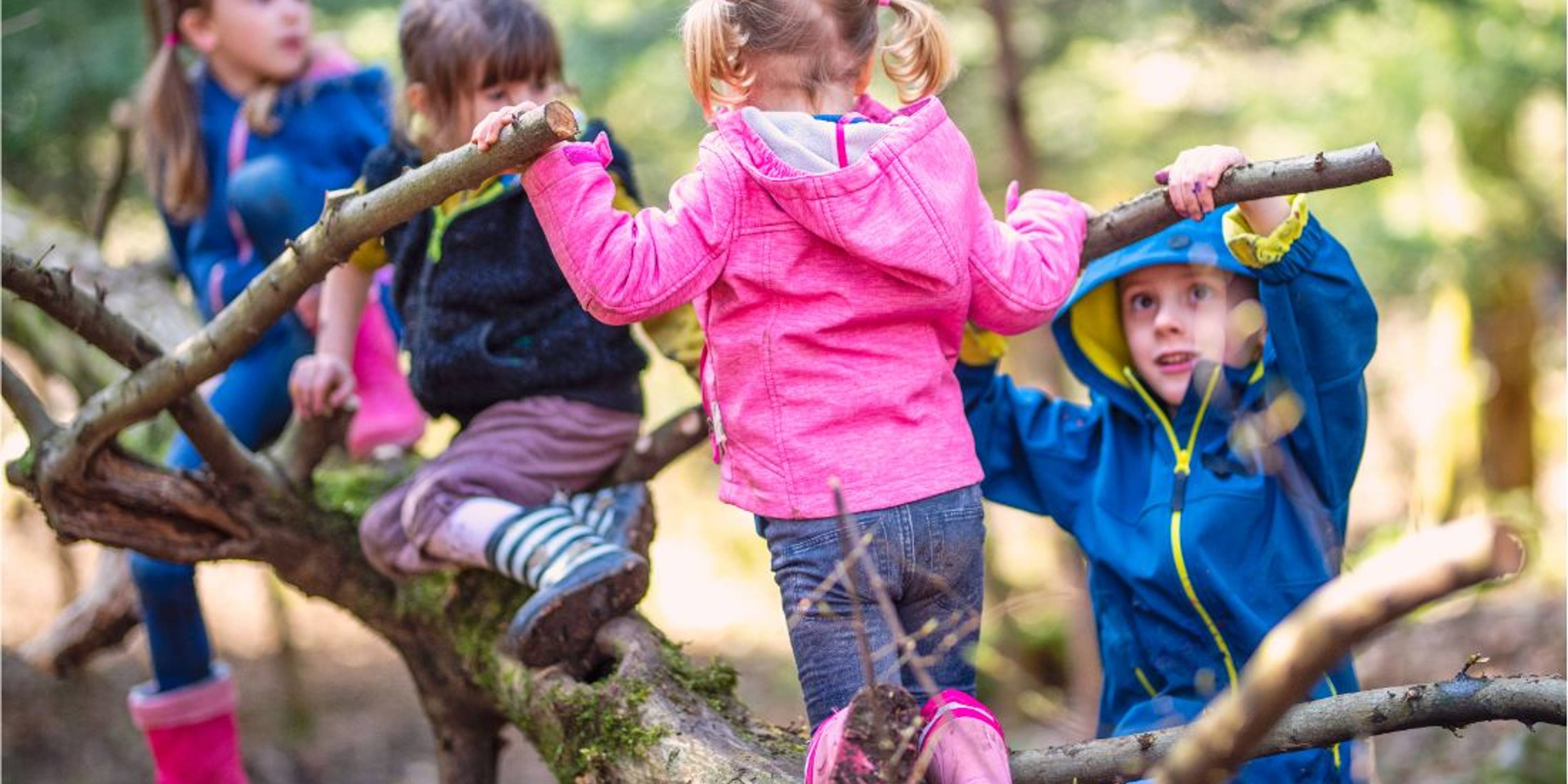
Apr 22, 2025
Encouraging adventurous play in the preschool years
Tune into our podcast interview with April's researchers of the month here. As well as providing numerous opportunities for exploration, joy, and expression, outdoor and adventurous play - the type of play that allows children to take age-appropriate risks - is associated with a range of positive health behaviours and outcomes. Yes, we're talking about the kind of play that might leave us adults with our hearts in our mouths at times, as children start to disappear up a tree, or engage in a rough and tumble game of chase. But its benefits are wide-ranging and known impacts include increased levels of habitual physical activity alongside better mental health and positive mood. In 2019, Dr Hesketh was involved in the creation of physical activity guidelines in the UK, which explicitly note the importance of outdoor play for children in the preschool age group. We know quite a lot about the play habits of school-aged children, but until now, have had significantly less data on their younger counterparts. Our Researchers of the Month, Dr Kathryn Hesketh and Professor Helen Dodd set out to discover how much time preschool-aged children spend playing in a range of indoor and outdoor spaces, and how adventurously they are playing within them. In the first national survey of play in children of this age, they asked over 1000 parents of two to four year olds about their children’s play habits, finding that, on average, children aged two to four spend around four hours per day (outside of educational settings) playing. Just under 50% of this was spent playing outdoors. Their findings shed interesting light on some inequalities in play, even in the youngest age group, which may exacerbate existing inequalities in health.

